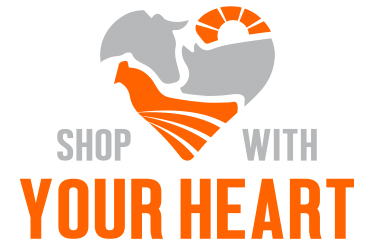
Farm: Kinderhook Farm
Location: Ghent, New York
Operation Profile:
- 400-500 Black Angus and Red Devon cattle
- ≈ 400 Dorper sheep
- ≈ 450 laying hens
- ≈500 broiler chickens
- 4 heritage breed pigs & 30 piglets
Certification: Animal Welfare Approved (beef cattle, sheep, laying hens)
Background
Kinderhook Farm is situated on over 1200 acres in Ghent, New York, which previously were used for a conventional dairy operation. Along with business partners Steve and Renee Clearman, who bought the land, farmers Lee and Georgia Ranney have transformed the property into a grazing farm. Today, the Ranneys raise Black Angus and Red Devon cattle, Dorper sheep, laying hens, broiler chickens and heritage breed pigs. Kinderhook Farm’s products are sold at its farm stand and to restaurants and smaller retail markets throughout New York.
According to Georgia, Kinderhook Farm employs an intensive rotational grazing system, providing their cattle and sheep with a 100% grass and legume diet. She says they grow and harvest hay on their farm to feed the cattle and sheep during the winter, and use Maremma and Akbash livestock guardian dogs to protect their animals from predators—namely, a significant coyote population.
Getting Certified
Kinderhook Farm is certified by Animal Welfare Approved (AWA) for its beef cattle, sheep flock and laying hens. Kinderhook Farm first sought AWA certification in order to maintain an existing, valuable business relationship. It was selling beef cattle to Grazin’ Angus Acres (GAA), a farm in Ghent owned by Dan and Susan Gibson, when GAA sought and received AWA certification. By AWA standards, GAA was then required to purchase only AWA-certified animals. Kinderhook Farm obtained AWA certification for its cattle and has since pursued and received certification for most of its other species. (Kinderhook Farm is currently seeking certification for its broiler chickens. Georgia says the farm has not been able to certify its pigs because it has not found an AWA-certified seller of piglets, but hopes to overcome that constraint in the future.)
According to the Ranneys, by the time the farm sought AWA certification, it was already largely compliant with AWA requirements. To achieve certification, the Ranneys only had to make “minor tweaks,” like removing certain ingredients from their feed for broiler chickens. Georgia reports that AWA’s Corrective Action Plans have always been manageable. Like other AWA members, the Ranneys do not have to pay any fees for the AWA certification. The Ranneys do, however, pay for their cattle and sheep to be Certified Grassfed.
AWA Certification Outcomes
Enhanced Marketing & Branding. The Ranneys use the AWA label as an independent validation of their practices. They use the label on the farm’s website, newsletter, egg cartons, brochures and farm store signs.
Marketing Support. According to Georgia, AWA also provides tremendous marketing support to increase the reach of AWA products. This support includes providing member farms with AWA labels and brochures and listing all members on the AWA website.
Better Record-Keeping & Farm Awareness. Georgia believes that keeping records for AWA certification will add value to any farmer’s business. First, the business will be better organized. Second, strong record-keeping practices serve as a valuable avenue for tracking and understanding the status of animal stocks.
Support Meeting Welfare Standards. The Ranneys have found the AWA audits to be very rigorous. However, Georgia notes that in her experience, “AWA wants to help you achieve or maintain certification. I believe that their inspectors have deep understanding of how animals should be raised, including recent developments in animal husbandry.”As a result, AWA has been willing to assist in developing a plan for needed changes. In that regard, she has found AWA “extremely easy” to work with.
Why Certify with AWA?
Georgia believes AWA certification is one way of giving consumers confidence that they are supporting a farm whose livestock is being raised according to AWA’s high animal welfare standards. Georgia also notes the importance of transparency: “Especially in light of recent videos of animals being subjected to abuse by workers in factory conditions, we feel that it is important to be a part of a program that provides third-party auditing, and shows our consumers that we are dedicated to the highest possible welfare standards.”

 Take the Shop With Your Heart survey and get materials that will help you make great shopping decisions.
Take the Shop With Your Heart survey and get materials that will help you make great shopping decisions.